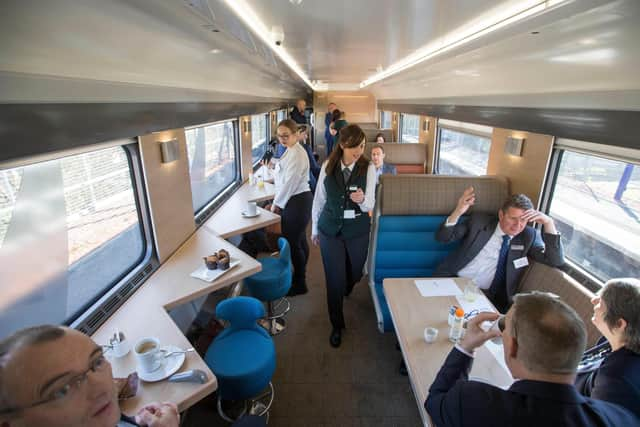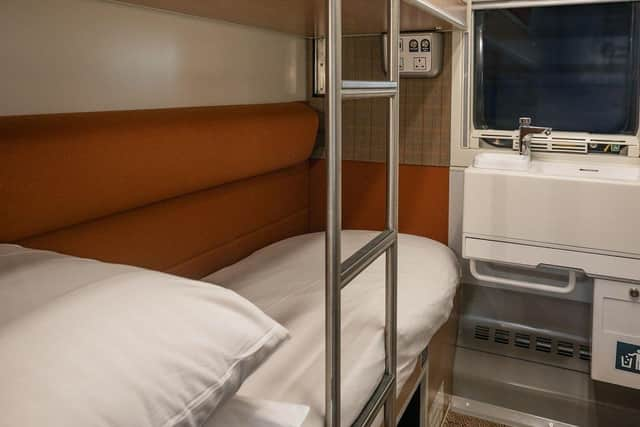Caledonian Sleeper charter plan to whisk wedding parties to the Highlands
and live on Freeview channel 276
Managing director Kathryn Darbandi said the idea followed a woman booking most of a Sleeper service for a 50th birthday celebration last year.
The Sleeper has traditionally not run on Saturdays due to lack of demand because most passengers taking weekend breaks travel on Fridays and Sundays, and the changeover day for holiday accommodation is normally Saturday.
Advertisement
Hide AdAdvertisement
Hide AdDarbandi, who took over running the Sleeper last year after senior posts at travel firms such as Tui and Thomas Cook, said she was keen to make full use of its new fleet, which was introduced in 2019, which includes double beds, and ensuite showers and toilets.


She said: "It gives us an opportunity on a Saturday evening to potentially think about events and chartering the train for something a bit different.
"We need to think it through carefully, but I think it’s a great opportunity.
"It’s a blue sky thinking idea that I think we’ll get to eventually.
Advertisement
Hide AdAdvertisement
Hide Ad"We did a really successful trial last year where a lady took almost all the train for her 50th birthday.


"We had bagpipes bringing everybody onto the platform and the train – the feedback was brilliant.
"She was incredibly positive about the experience and thoroughly enjoyed it.
"I think there are many opportunities like that.
"We hope to offer great transport options to the Highlands for weddings.


"There’s lots of opportunity like that in the future.”
Two Sleeper trains currently run six nights a week.
Advertisement
Hide AdAdvertisement
Hide AdThe Lowlander operates between London, Edinburgh and Glasgow, dividing at Carstairs, while the Highlander connects London with Aberdeen, Fort William and Inverness, dividing in Edinburgh.
Darbandi said she was looking at how to boost the Inverness service, such as by adding more carriages or increasing its frequency, because it was so popular it could sell twice over on some nights.
However, that could involve reducing the number of carriages on other routes.
She said the route’s success came as part of the Sleeper last month notching up its highest ticket sales since outsourcing firm Serco won the franchise seven years ago.
Advertisement
Hide AdAdvertisement
Hide AdA new route to Oban is also being considered to improve access to the Hebrides, and a new stop for current services in Birmingham.
Lowlander passengers may be able to board earlier than the current 11pm in Edinburgh and 10pm in Glasgow to allow them more time to have dinner on the train.
Darbandi insisted that multiple teething problems with the new fleet, such as with water supplies and electronic systems controlling door locks, had largely been ironed out.
She said major faults were now “infrequent” and passengers could expect a “high probability” the showers would work – a common early complaint.
Advertisement
Hide AdAdvertisement
Hide AdShe said the Sleeper’s reliability and punctuality was also “significantly better than in the early days”.
Darbandi said staff concerns over fatigue and lack of suitable rest facilities, which triggered a series of strikes in 2020, had also been resolved – and the Rail, Maritime and Transport union agreed.
Comment Guidelines
National World encourages reader discussion on our stories. User feedback, insights and back-and-forth exchanges add a rich layer of context to reporting. Please review our Community Guidelines before commenting.
